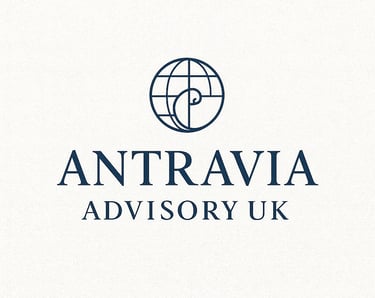Payment Gateways for UK Travel Agents: What you need to know | Antravia UK
Key guide for UK-based travel agents on payment gateways for worldwide sales. Delve into Stripe, Adyen, and PayPal costs, MoR vs. pass-through, chargeback management, reconciliation strategies, and regulations like PSD3, ATOL, and GDPR.
TRAVEL FINANCE AND ACCOUNTING BLOG - U.K. FOCUS
10/26/20254 min read


Payment Gateways for Travel Agents: What you need to know
As a travel agent in the UK, you've probably dedicated time to tailoring trips for clients eyeing Mediterranean coasts or Far East explorations. Yet, the backend, from navigating payments for everything from Channel crossings to transatlantic flights, can turn smooth deals into cash flow strains. A mismatched gateway means surprise charges, regulatory snags, and disputes that erode your hard-earned commissions.
Here, we unpack gateways for UK agents booking worldwide, from local jaunts to international escapes. Expect details on models, costs in go-tos like Stripe, Adyen, and PayPal, travel-specific chargeback threats, and reconciliation workflows. We'll also highlight UK laws, such as PSD3 for authentication and ATOL protections, to keep you on the right side of compliance.
Understanding Payment Gateways in the Travel Space
Payment gateways bridge client payments, cards, Apple Pay, or transfers, to supplier accounts, handling GBP for UK stays or EUR for abroad. UK agents need ones compliant with PCI DSS security and linking to systems like Sabre or Travelfusion, especially for multi-currency global flows.
Travel's demands elevate stakes: packages over £3,000 draw fraud, while peaks like summer holidays strain capacity. PSD2 (and PSD3 from 2026) under FCA rules requires Strong Customer Authentication (SCA), while Package Travel Regulations 2018 mandates clear terms. TOMS VAT (via HMRC's margin scheme) applies to worldwide margins, with 20% on taxable elements. Transaction-based fees dominate, but scrutinize extras amid volatile seasons.
Merchant of Record vs. Pass-Through: Which Model fits your Agency?
Your model influences liability and how you report worldwide earnings. Pass-through has you relay client funds to suppliers post-commission, so simple for UK agents using ATOL-protected consolidators. Revenues accrue fast, risks (chargebacks) shift outward, fitting FCA's agent guidelines.
MoR positions you as seller: full collections, net pays to partners, and direct tax handling (TOMS VAT at margin). It accelerates liquidity, bypassing 45-60 day waits, and enables upsells like insurance bundles. Drawbacks? Full refund/AML exposure under Money Laundering Regulations 2017 and Consumer Rights Act 2015. UK OTAs using MoR see 43% growth by streamlining globals, but start pass-through if volumes are low. Gateways like Adyen toggle seamlessly, supporting SCA.
Hidden Costs lurking in Stripe, Adyen, PayPal, and beyond
UK agents encounter layered fees from EU/EEA surcharges and post-Brexit FX. PSD3 compliance adds verification costs.
Stripe: 1.5% + £0.20 for UK cards (lower than EU). Cross-border: +1.5% + 1% FX, £12 chargebacks—£40+ on a £1,500 Asia trip. No monthlies aid solos, but <£400k volume skips deals.
Adyen: Interchange (0.2-0.3%) + 0.11% + £0.10. No setups win for 100+ bookings; FX 0.6-1.2%. MoR: 0.1% SCA. £400 PCI audits yearly; excels in global routing.
PayPal: 2.9% + £0.30 UK, +1.5% international + 3-4% FX (£40-60 on £1,200 remit). £0.89 mins, inactivity fees, 1% instants. Good for deposits, weak on volumes.
Nuvei: 1.5% + £0.20, splits included. £80k monthly discounts; £0.15 reversals. Trim 0.2-0.5% on 50 deals quarterly.
Navigating Chargeback Risks
UK travel chargebacks exceed e-commerce by 2-3x (1% baseline), from "non-delivery" after delays. Reg E gives 120 days; MoR bears all, fees, non-refunds (ATOL bonds help), £12-20 hits. £200-4,000 averages hurt: one fraud costs a fortnight's work.
Pass-through offloads to suppliers; use SCA and terms per Package Regs. Stripe Radar/Adyen tools drop 40%; document via email. Under 0.7% avoids network penalties, linking to GDPR data rules.
Streamlining Payment Reconciliation in Your Accounting
Matching payments to global books costs UK agents weeks, with nets lagging clears. TOMS demands margin trails for HMRC.
Integrate to Xero/QuickBooks: daily flags, e.g., £1,800 client vs. £1,620 net. Weekly inflows/outflows; monthly FX (2% swings 2024). Avoid currency mixes, partials. Virtual splits for MoR; portals for pass-through. Zero gaps, <4-hour audits. Batch manually; Expensify for receipts.


References
Stripe UK Pricing: https://stripe.com/gb/pricing
Adyen Pricing: https://www.adyen.com/pricing
PayPal UK Fees: https://www.paypal.com/uk/digital-wallet/paypal-consumer-fees
PSD3 and FCA Rules: https://www.fca.org.uk/firms/payment-services-regulations
ATOL and Package Travel Regs: https://www.caa.co.uk/Consumers/Booking-and-holidays/ATOL-protection/
TOMS VAT Guidance: https://www.gov.uk/guidance/vat-tour-operators-margin-scheme
Merchant Models: https://www.wexinc.com/resources/blog/merchant-vs-agency-model-travel-payments/
Chargebacks: https://www.chargebackgurus.com/blog/online-travel-agency-chargebacks
Reconciliation: https://www.bluecopa.com/blog/navigating-the-payment-reconciliation-challenges-in-online-travel-agencies-otas
Nuvei for Travel: https://www.nuvei.com/posts/payment-processing-for-the-travel-industry
Consumer Rights Act: https://www.legislation.gov.uk/ukpga/2015/15/contents


Disclaimer
This article is provided for general information purposes only and does not constitute accounting, tax, or legal advice. Regulations, tax rules, and reporting requirements may change, and their application can vary depending on your business structure and circumstances. Readers should seek professional guidance from a qualified accountant or adviser before making any financial, tax, or compliance decisions. Antravia UK accepts no responsibility for any loss arising from reliance on the information contained herein.
Antravia Advisory UK
Where Travel Meets Smart Finance
Email:
Contact us:
© 2025. All rights reserved. | Disclaimer | Privacy Policy | Terms of Use | Accessibility Statement
© 2025 Part of the Antravia Group.
Antravia.com | Antravia.co.uk | Antravia.ae |
Finance.travel | Tax.travel | Consultancy.travel | VAT.travel | VAT.claims |
USSales.tax | EuroVAT.tax | UKVAT.tax |
contact@antravia.com
Antravia Ltd
71-75 Shelton Street
Covent Garden, London
WC2H 9JQ
United Kingdom
